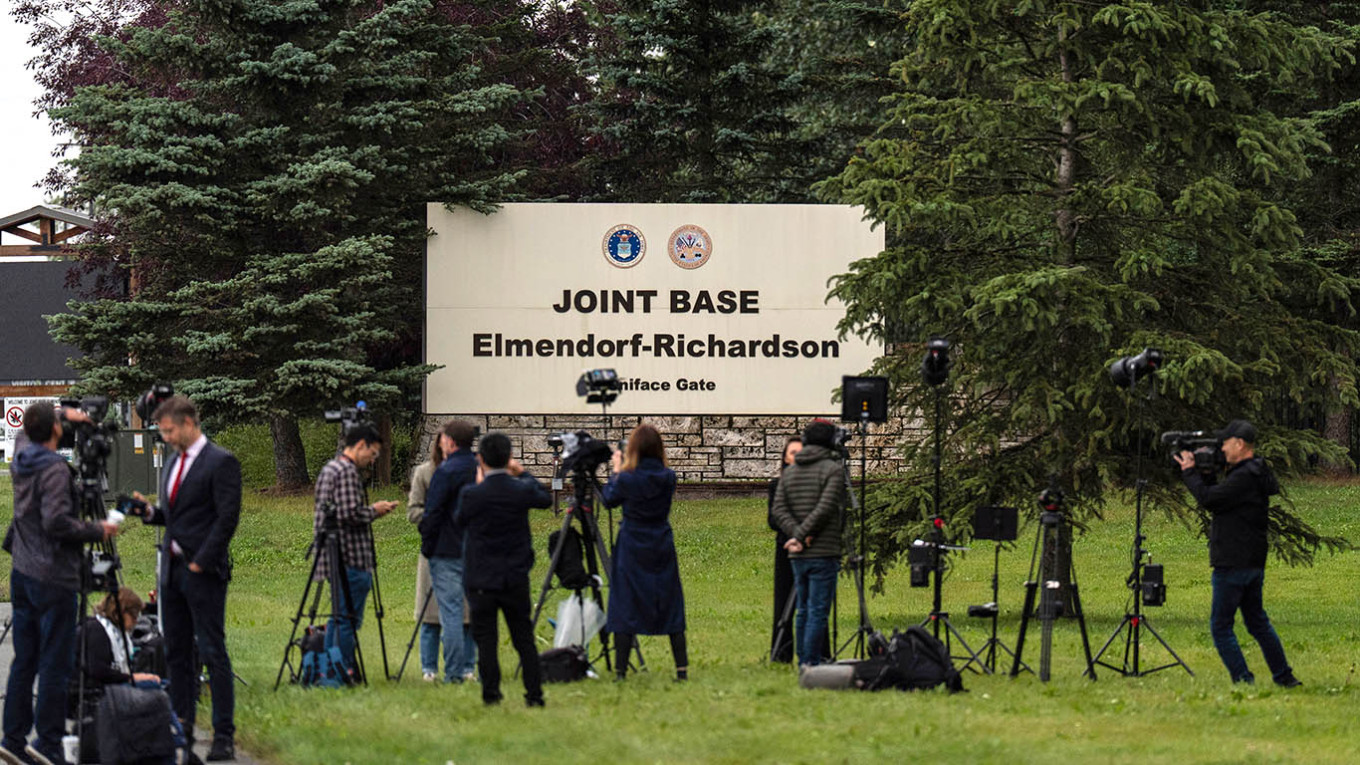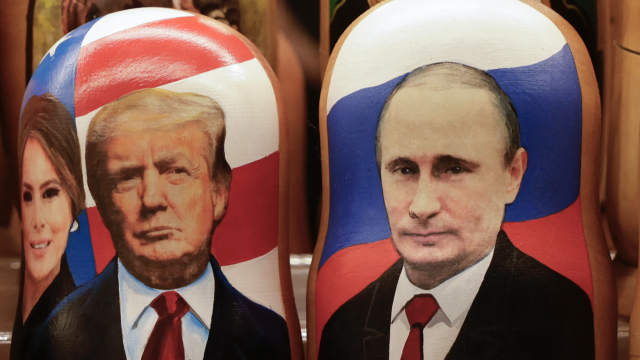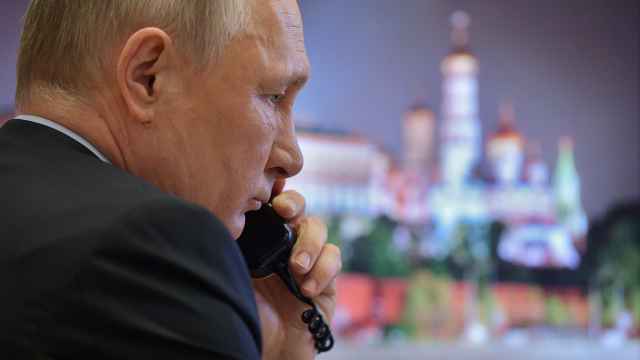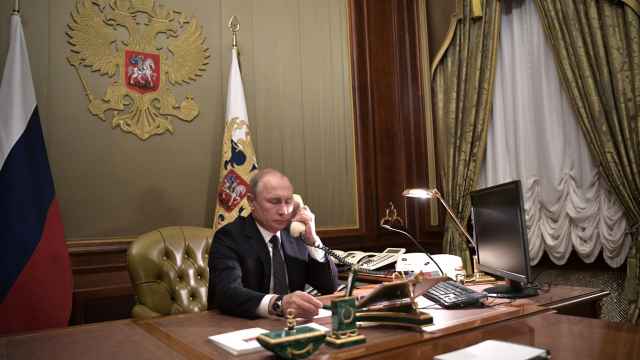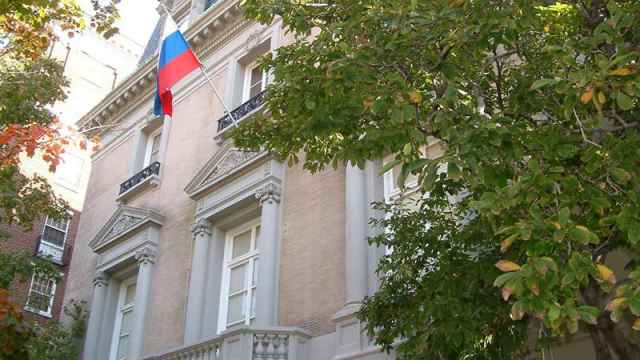U.S. and Russian presidents Donald Trump and Vladimir Putin are to meet at a U.S. air base in Alaska on Friday for talks on the Ukraine war.
Expectations are high for the first summit between sitting U.S. and Russian presidents in more than four years, but Moscow and Kyiv remain far apart in their visions on how to end the conflict.
It will be Putin's first trip to a Western country since launching his invasion in February 2022, as well as his first U.S. visit in 10 years.
Here is a look at what each side hopes to achieve from the talks:
Russia
For Putin, who has faced years of isolation from the West since the invasion, the summit is an opportunity to press Russia's hardline demands for ending the conflict.
In a draft peace plan published in June, Russia called on Ukraine to withdraw its forces from the Kherson, Luhansk, Zaporizhzhia and Donetsk regions that Moscow claimed to annex in 2022. Ukraine has rejected the idea.
Russia has also called on Ukraine to halt its military mobilization, abandon its NATO ambitions, and for Western countries to immediately stop weapon supplies — something critics say amounts to capitulation.
In addition to territory, Russia wants Ukraine to ensure the "rights and freedoms" of the Russian-speaking population and to prohibit what it calls the "glorification of Nazism."
It also wants Western sanctions lifted.
Ukraine says Russia's allegations of Nazism are absurd and that it already guarantees rights to Russian speakers.
Ukraine
Ukrainian President Volodymyr Zelensky is not scheduled to take part in the summit, but has said there can be no peace deal without its involvement. He has called the meeting a "personal victory" for Putin.
Ukraine has called for an unconditional ceasefire on land, sea and sky as a prerequisite to peace talks.
It wants both sides to release all prisoners of war and demanded the return of Ukrainian children it says Russia illegally kidnapped.
Ukraine says Russia has forcibly transferred thousands of Ukrainian children into areas under its control since the war began, often adopting them into Russian families and assigning them Russian citizenship.
Russia rejects the kidnapping allegations but acknowledges that thousands of children are on its territory.
Ukraine says any deal must include security guarantees to prevent Russia from attacking again, and that there should be no restrictions on the number of troops it can deploy on its territory.
It says sanctions on Russia can only be lifted gradually and that there should be a way of reimposing them if needed.
United States
Trump promised he would end the war within "24 hours" after taking office in January. But eight months on, and even after repeated calls with Putin and several visits to Russia by U.S. envoy Steve Witkoff, he has failed to extract any major concessions from the Kremlin.
The summit is his first opportunity to broker a deal in person.
The U.S. president, author of the book "Trump: The Art of the Deal," said on Wednesday that Russia would face "very severe consequences" if it did not halt its offensive.
The U.S. leader initially said there would be some "land swapping going on" at the talks, but appeared to walk back after speaking with European leaders on Wednesday.
Trump has said he would "like to see a ceasefire very, very quickly."
But the White House has played down expectations of a breakthrough, describing it as a "listening exercise" for the former reality TV star.
"If the first one goes okay, we'll have a quick second one," Trump said, hinting Zelensky could take part in a subsequent summit.
Europe
Despite providing military support for Ukraine and hosting millions of Ukrainian refugees, European leaders have been sidelined from the peace talks that may affect the region's security architecture in the future.
European representatives were neither invited to the past three meetings between Russian and Ukrainian officials in Istanbul, nor to the Russia-U.S. talks in Riyadh in February.
In a statement last week, the leaders of Britain, France, Italy, Germany, Poland, Finland and the EU Commission warned there could be no meaningful peace without Ukraine's participation.
"Territorial questions concerning Ukraine can be, and will be, negotiated only by the Ukrainian president," French President Emmanuel Macron said after speaking with Trump on Wednesday.
Macron and U.K. Prime Minister Keir Starmer have signaled they are willing to deploy peacekeepers in Ukraine once the fighting ends, an idea Russia has vehemently rejected.
A Message from The Moscow Times:
Dear readers,
We are facing unprecedented challenges. Russia's Prosecutor General's Office has designated The Moscow Times as an "undesirable" organization, criminalizing our work and putting our staff at risk of prosecution. This follows our earlier unjust labeling as a "foreign agent."
These actions are direct attempts to silence independent journalism in Russia. The authorities claim our work "discredits the decisions of the Russian leadership." We see things differently: we strive to provide accurate, unbiased reporting on Russia.
We, the journalists of The Moscow Times, refuse to be silenced. But to continue our work, we need your help.
Your support, no matter how small, makes a world of difference. If you can, please support us monthly starting from just $2. It's quick to set up, and every contribution makes a significant impact.
By supporting The Moscow Times, you're defending open, independent journalism in the face of repression. Thank you for standing with us.
Remind me later.


